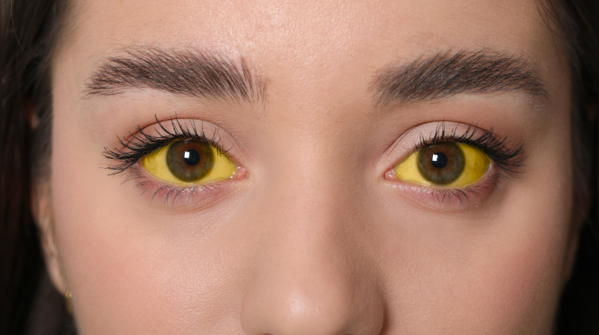- News
- lifestyle
- health-fitness
- health-news
- 5 things your eyes can tell about your liver health
5 things your eyes can tell about your liver health

Your eyes can reveal a lot about your liver
Liver diseases are fast emerging as a major public health concern in India, contributing to nearly one in five liver-related deaths globally. Yet, early warning signs often go unnoticed—some of them visible right in the eyes. The eyes tend to be the first indicator of liver malfunction, well before other symptoms surface. Here are some things your eyes can tell you about your liver health:

Yellow eyes
Yellowish discoloration of the eyes is one of the primary indicators of jaundice due to an accumulation of bilirubin when the liver is not in proper working order. Yellowing of the eyes (jaundice) is the most recognized sign of liver issues.

Puffy eyes
Swelling or puffiness around the eyes, especially in the morning, can be a sign of fluid retention from a sluggish liver.

Red eyes
According to Dr. Ajay Sharma, Founder and Chief Medical Director of Eye-Q Eye Hospitals, “Bloodshot or red eyes may reflect systemic inflammation linked to liver toxicity. Chronic liver diseases result in clotting or coagulation diseases due to deficiency of Vitamin K dependent factors that can manifest as recurrent bleeding from the vessels of the eye manifesting as red eye.”

Dry itchy eyes
Dry, gritty, or itchy eyes can signal poor bile flow, often associated with chronic liver conditions.

Dark circles
Dark circles under the eyes are commonly seen in individuals with long-term liver stress or toxin overload. Likewise, blurry vision or visual disturbances may result from liver-related nutrient deficiencies, particularly in vitamins A and E.

More signs of a liver problem
According to Dr. Divya Rao, Head of AI and Chief Medical Officer at Remidio, “Vitamin A deficiency—common in chronic liver disease and alcohol misuse—can cause night blindness, dry eye, and corneal damage. Metabolic and inherited liver diseases may lead to cataracts, retinal changes, and optic nerve damage. Infections like Hepatitis C and autoimmune hepatitis can cause dry eye disease, eye inflammation, or even vision loss.”
Beyond visible signs, AI research now reveals that subtle retinal changes—imperceptible to humans—may act as early indicators of liver cancer, cirrhosis, and fatty liver disease. With rapid progress in eye imaging, companies like Remidio are exploring how AI-powered eye exams can help advance early identification of liver disease risk.
These subtle but significant changes in the eyes shouldn't be overlooked, as they may be the body's early warning signs of liver distress. Timely evaluation and intervention can play a crucial role in preserving both ocular and liver health. So, the next time you get an eye exam—it might not just protect your vision, but your liver too.







